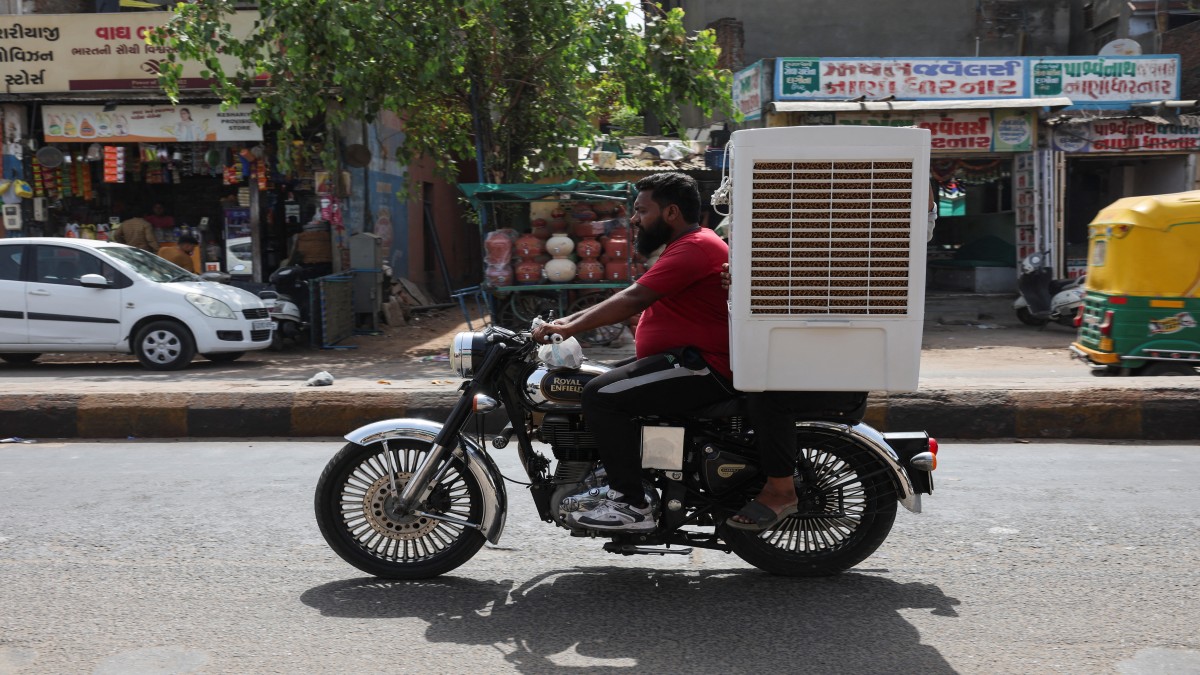Heat not only drains our energy, but it may also be accelerating our ageing process.
According to a new study from the University of Southern California, extended exposure to intense heat speeds up biological ageing. These effects are most noticeable in older persons.
In contrast to chronological age, which is determined by a person’s birthdate, biological age is determined by how well the body performs at the molecular, cellular, and system levels, the research says.
These findings are crucial because a higher biological age than chronological age is linked to an increased risk of illness and death.
Let’s take a closer look.
The study
Nearly 3,700 participants, with an average age of 68, were part of the study, which was published in the peer-reviewed journal Science Advances. Researchers looked at the genetic effects of prolonged heat exposure on the ageing process.
They monitored the participants’ whereabouts between 2010 and 2016 and examined the severity of the heatwaves they encountered. They divided heat levels into three groups using the US heat index: Caution (temperatures up to 32 degrees Celsius), Extreme Caution (32-39 degrees Celsius), and Danger (39-51 degrees Celsius).
Thousands of genomic areas were examined for epigenetic alterations in blood samples. To find out how much quicker people were ageing than the average, researchers used three well-known biological ageing clocks: DunedinPACE, PCGrimAge, and PcPhenoAge.
According to the study, there is a direct link between extended exposure to heat and faster ageing. Researchers discovered that individuals exposed to higher temperatures aged more quickly using three recognised biological ageing clocks.
Over the six-year trial period, the PCGrimAge clock showed 1.09 years of additional ageing, compared to 2.48 years for the PcPhenoAge clock. Shorter-term ageing effects were measured using the DunedinPACE clock, which showed a smaller but still significant rise of 0.05 years.
These results imply that extended exposure to heat caused some participants to effectively age up to 8.48 years throughout the study period, instead of the anticipated six years.
Also read: It’s only February and IMD puts Mumbai on heatwave alert for next 3 days
The link between heat and ageing
Although it happens naturally, people age at different rates. Stress and lack of sleep are examples of environmental factors that might affect how quickly our health begins to decline over time.
Another important component that is now being understood is heat.
Long-term exposure to high temperatures changes the way our genes work in addition to causing immediate health problems. Although DNA doesn’t alter throughout all stages of a person’s life, environmental stress can affect how genes function or turn on or off. This process, called epigenetics, is a major factor in ageing.
DNA methylation (DNAm) is the most well-established type of epigenetic control. It is a process by which chemicals bind to DNA and alter gene activity without altering the genetic code itself.
Heat stress can change DNA patterns, which can impact the body’s capacity to repair itself and control essential processes, ultimately speeding up the biological deterioration.
“It’s really about the combination of heat and humidity, particularly for older adults, because they don’t sweat the same way. We start to lose our ability to have the skin-cooling effect that comes from that evaporation of sweat,” senior author Jennifer Ailshire, a professor of gerontology and sociology at the University of Southern California, said.
Also read: A class question: Why some groups are more at risk from heatwaves than others
Future concerns
The study is crucial because heatwaves are becoming more frequent and severe.
Many countries, including India, are witnessing intensifying heatwaves, in turn increasing health risks and ageing-related issues.
There have been limited studies on humans despite earlier evidence linking heat to epigenetic changes in fish, chickens, and mice.
The current study closes that gap by highlighting the necessity of more research into the molecular effects of extended heat exposure on the human body.
The researchers do admit certain limitations, though, as they failed to take into consideration whether subjects had air conditioning or spent a lot of time outside.
Despite these discoveries, plenty is unknown about how people might adapt to temperature-induced biological changes. A 2020 review of environmental epigenetics found only seven studies on the subject, with most focusing on cold exposure rather than heat.
With inputs from agencies
Also read: India’s heatwave is leading to rise in ‘eye stroke’ cases: What is the condition?


)

)
)
)
)
)
)
)
)



